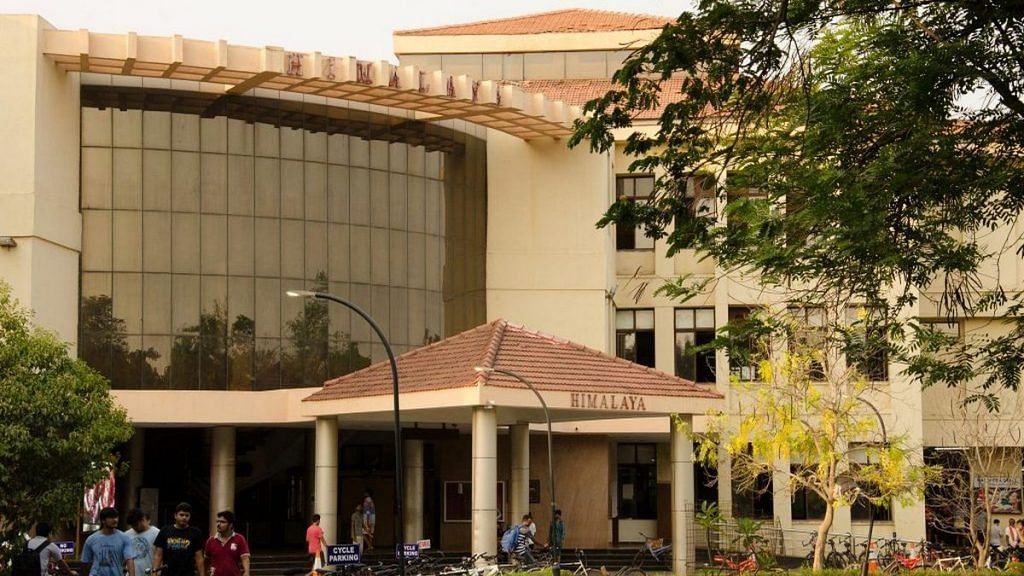New Delhi: As many as 12 Indian institutions have achieved top 100 positions in the QS World University Rankings by Subject 2021, with three Indian Institutes of Technology (IITs) making it to top 50 this time.
The rankings released on 4 March offers independent data on the performance of 253 programmes at 52 Indian higher education institutions, across 51 academic disciplines. These programmes include various engineering disciplines (chemical, petroleum, civil, mechanical), law, development studies and arts, among others.
In the QS World University Rankings by Subject 2020, IIT-Delhi and IIT-Bombay secured ranks among the top 50 engineering colleges — the first time for any Indian institute. IIT-Delhi slipped on the rankings this time.
According to the data released by QS, IIT-Madras is at number 30 for its petroleum engineering programme, IIT Bombay and IIT Kharagpur have ranked 41 and 44, respectively, in the subject ranking for mineral and mining engineering. “These are the highest ranks achieved by the public Institutes of Eminence across this year’s Subject Rankings,” the statement by QS says.
The Indian Institute of Science (IISc) Bangalore is at number 78 for materials science and at 93 for chemistry. IIT-Delhi has achieved top-100 ranks in electrical & electronic engineering (54th, down from 49th in 2020), computer science (70th), and mechanical engineering (79th).
IIM-Bangalore and IIM-Ahmedabad are also in top 100 for their business and management programmes. Anna University and Jawaharlal Nehru University have also made it to the top 100, for petroleum engineering and anthropology, respectively.
Also read: IIT-Delhi wants to set up campus abroad, asks for ‘clear directions’ from education ministry
Private universities enter rankings
Among the private universities, O.P. Jindal Global University has entered the global top-100 for law — at 76th position. Birla Institute of Technology and Science (BITS) has entered the rankings for pharmacy & pharmacology, securing a place in the 151-200 band. It has also entered the rankings for mathematics (451-500 band) and business & management studies (451-500 band).
Jamia Hamdard has entered the rankings for pharmacy & pharmacology (101-150), Manipal Academy of Higher Education for pharmacy & pharmacology (151-200), and Vellore Institute of Technology for electrical and electronic engineering (251-300 band).
Globally, QS World University Rankings by Subject analyses the performance of 13,883 individual university programmes, opted for by students at 1,440 universities in 85 locations across the world, across 51 academic disciplines. Harvard University and Massachusetts Institute of Technology are the strongest-performing institutions across the exercise globally, ranking top slot in 12 subjects.
Commenting on India’s rankings, Ben Sowter, senior vice-president of Professional Services at QS, said, “One of the biggest challenges faced by India is educational — providing high-quality tertiary education in the face of exploding demand: this much was recognized by last year’s NEP, which set the ambitious target of a 50 percent gross enrolment ratio by 2035. It should therefore be small cause for concern that the number of Indian programs featuring across our 51 subject rankings has actually decreased over the last year — from 235 to 233.”
He said this is a “minor decrease” but indicative of the fact that “expanding provision in a way that does not sacrifice quality remains a highly-challenging task”.
Ben added: “However, QS also note that a number of programs at India’s privately-run prospective Institutions of Eminence have made progress this year, demonstrating the positive role that well-regulated private provision can have in enhancing India’s higher education sector.”
Also read: IIT-M, IISc, JNU partner with Queen’s University Belfast to use big data in healthcare
